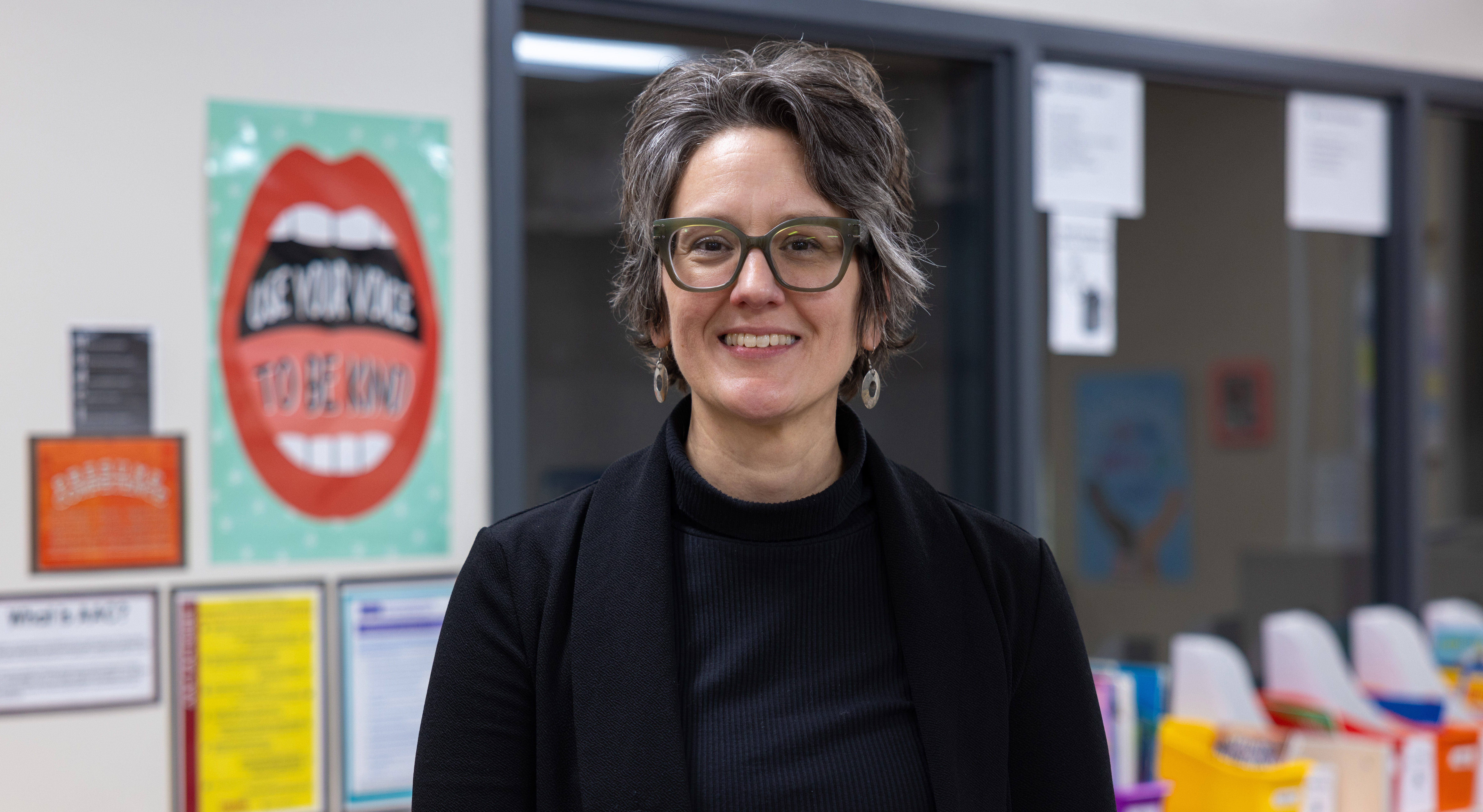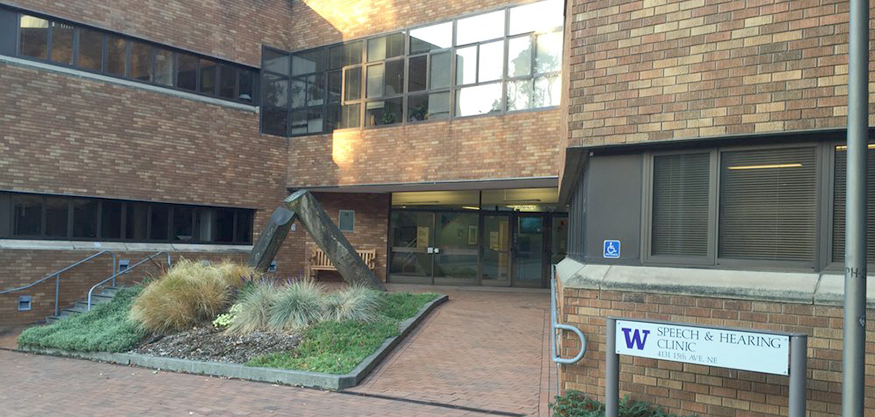
If there’s an opportunity to help children thrive, Sara Jerger is all in. Formerly a speech and language pathologist for an elementary school in Renton, Washington, Jerger (BS, MS, Speech & Hearing Sciences, 2014, 2016) now oversees secondary special education programs for the Renton School District. She has long focused on children and education after circumstance set her on that path.
After high school in Chicago, Jerger enrolled in college in rural Minnesota but quickly realized it wasn’t for her. She and several roommates drove to Seattle, where she found work at Community House Mental Health Agency, a group home for adults with severe and persistent mental illness. Many of the residents were veterans who had previously been unhoused.
“I liked the service part of that work,” says Jerger. “I was a 20-year-old working with people who were really struggling, actively managing something I couldn’t relate to from personal experience. That foray into the world of mental health and the access I had to that community — I’m not sure I realized at the time what a privilege that was.”
After seven years at Community House, an unexpected pregnancy changed Jerger’s plans. She took time off to raise her child, and — inspired by her daughter’s cooperative preschool — decided to pursue a degree in early childhood education. After earning an AA degree at North Seattle College, she landed a job as a teacher at her daughter’s preschool, Rainier Valley Cooperative Preschool.
I think my graduate training was some of my most well-spent money. I could go on and on about the faculty and clinicians in the Department of Speech & Hearing Sciences. ...I continue to be very grateful to them.
Though Jerger loved the job, she eventually worried that the physical demands of preschool teaching would not be sustainable for a long career. Her favorite part of the job was supporting young children in their communication — helping them communicate their frustrations effectively rather than hitting somebody or grabbing a thing — so she researched communication-related careers. That’s when she discovered the Department of Speech & Hearing Sciences (SPHSC) in the UW College of Arts & Sciences — specifically its program in speech-language pathology (SLP), ranked in the top five nationally.
“This is it,” she thought. “This is what I want to do.”
Discovery in Speech & Hearing Sciences
Jerger earned her BS in speech & hearing sciences and then, with the help of faculty mentors, entered the department’s master’s degree program in speech-language pathology. She gained research experience in a faculty lab and clinical experience working with clients in the UW Speech and Hearing Clinic, an outpatient center that provides care to the community while serving as a clinical education and research facility.
All SPHSC graduate students train in the clinic, with faculty observing them as they address actual SLP cases. “Being observed was nerve-wracking at first, but all of the supervisors were incredibly supportive,” Jerger says. “Their feedback was genuine and meaningful and constructive. There was always something I felt I could take away to improve my practice the next time.”

Toward the end of the master’s program, Jerger completed an internship, working in an elementary and middle school in the Renton school district, which led to a full-time SLP position at Cascade Elementary School when she graduated. The communication challenges she addressed there ranged from children who couldn’t pronounce their Rs to those with very complex communication needs. Some could not speak at all and required an alternative communication device to have their needs met due to motor system challenges.
“Being an SLP never got old,” Jerger says. “There was always such a range of things to think about and problem-solve around. It always stayed interesting.”
Recruited for a Leadership Role
Jerger had been working as an elementary school SLP for seven years when she was recruited to be a special education facilitator for eight Renton elementary schools. A year later, she became Renton School District’s secondary school special education director. Despite loving her SLP work, she welcomed these new challenges, which involve working with not just SLPs but entire special education teams.
A major focus of Jerger’s current work is improving systems to alleviate some of the stresses that special education teachers experience. She also oversees staffing and must address student mental health issues that might have serious consequences for a student’s educational success. And when a student’s specialized needs push the limits of what the school district can provide, Jerger must think creatively about how best to proceed.
“The demands of this job are very different than the demands I had as an SLP,” Jerger says. “I miss working with the kids, but there is also satisfaction in what I’m doing now. While there’s not the more immediate individual progress that I can track and tally, there is hopefully a larger — though slower — impact in the more systemic work I’m doing.”
When Jerger started her new role in July 2024, she enrolled in UW Bothell’s administrator certificate program, Enhancing Capacity for Special Education Leadership. “I’ll be a triple Husky when I finish with the certificate,” she says, adding that much of her professional success is due to the preparation the UW has provided.
“I think my graduate training was some of my most well-spent money,” she says. “I could go on and on about the faculty and clinicians in the Department of Speech & Hearing Sciences. Even coming in as an older non-traditional student, the faculty helped shape my identity in a way that fostered so much more self-confidence. I continue to be very grateful to them. They made things seem possible for me that I didn’t know were possible.”
More Stories

Finding Love at the UW
They met and fell in love as UW students. Here, 10 alumni couples share how they met, their favorite spots on campus, and what the UW still means to them.

AI in the Classroom? For Faculty, It's Complicated
Three College of Arts & Sciences professors discuss the impact of AI on their teaching and on student learning. The consensus? It’s complicated.

Bringing Music to Life Through Audio Engineering
UW School of Music alum Andrea Roberts, an audio engineer, has worked with recording artists in a wide range of genres — including Beyoncé.
